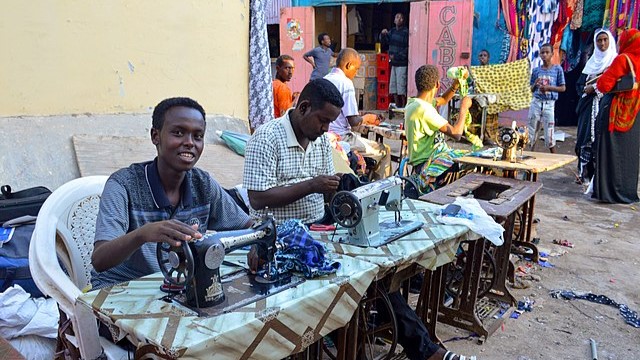By Sandra Harvis
At the edge of the Horn of Africa, where the Red Sea meets the Gulf of Aden, lies Djibouti—a nation often absent from global headlines, yet layered with cultural complexity and dramatic landscapes. Small in size but striking in character, the country offers a vivid portrait of life shaped by both tradition and modernity.
A Cultural Crossroads
Djibouti’s identity is inseparable from its geography. Positioned at a maritime gateway between Africa and the Middle East, it has long served as a point of exchange. Centuries of trade brought not only goods but also ideas, languages, and customs, leaving an imprint that remains visible in daily life.
In the capital, Djibouti City, this convergence is unmistakable. The central markets brim with spices, textiles, and handmade crafts. Somali, Afar, Arabic, and French are spoken in quick succession, a testament to the diverse population and the country’s colonial legacy. Men in traditional Somali sarongs share the streets with patrons of French-style cafés, while women in bright shawls navigate the bustle, balancing baskets with practiced ease.
Cultural traditions remain deeply embedded, even as modern infrastructure reshapes the urban core. The practice of chewing khat—a mildly narcotic leaf—continues to punctuate afternoons. Groups of men gather in shaded courtyards or roadside stalls, exchanging stories as time slows in the haze of the day. It is a ritual of connection as much as consumption, reflecting values of sociability and continuity.
Scenic Wonders Beyond the Capital
If Djibouti City carries the weight of history and commerce, the country’s landscapes reveal another dimension altogether.
Lake Assal, a surreal expanse of turquoise water ringed by black volcanic rock, holds the distinction of being Africa’s lowest point and one of the saltiest lakes on earth. The stark beauty of its shores—where the air is heavy with salt and the sun burns relentlessly—offers a glimpse into nature’s extremes.
To the south, the Ali Sabieh region unfolds in austere desert terrain. Jagged hills and rolling dunes extend across the horizon, their silence broken only by wind. Trekkers and adventurers are drawn to its isolation, captivated by the raw, unfiltered qualities of the landscape.
Along the Gulf of Aden, the story shifts again. Coral reefs, largely untouched, thrive just offshore, supporting marine life from schools of brilliantly colored fish to migratory whale sharks. Tadjoura, one of the region’s oldest port towns, provides a base for diving and snorkeling. Life there moves at a slower rhythm, centered on the sea and its enduring bounty.
The Rhythm of Everyday Life
The pace of Djiboutian life moves between intensity and pause. Djibouti City hums with traffic and commerce in the mornings, before slowing under the midday heat as shops shutter and streets empty. Resilience is woven into this rhythm, a response to harsh climate and scarce resources.
Food, too, tells the story of survival and exchange. Fresh seafood dominates coastal tables, while stews enriched with cumin, cardamom, and coriander speak to regional trade. French influences persist in bakeries where croissants and baguettes appear alongside local breads. This blend of culinary traditions mirrors the larger cultural fabric—layered, adaptive, and enduring.
A Hidden Gem of the Horn
Djibouti may occupy a small corner of the map, yet its character is expansive. It is a country where the cosmopolitan energy of a port city intersects with the silence of deserts and the brilliance of coral reefs. Where old traditions persist alongside modern change. And where the resilience of its people shapes a life both challenging and rich.
For those who encounter it, Djibouti leaves an impression not of a forgotten outpost, but of a place where history, geography, and culture meet in rare balance.
Sources:
- Food and Agriculture Organization (FAO). Traditional Food Practices in the Horn of Africa. FAO Regional Report, 2021.
- Samatar, Abdi Ismail. Africa’s Horn: Culture, Identity, and History. University of Minnesota Press, 2018.
- United Nations Development Programme (UNDP). Djibouti Human Development Report, 2022.
- Ministry of Culture and Communication, Republic of Djibouti. Cultural Policy Report, 2022.


